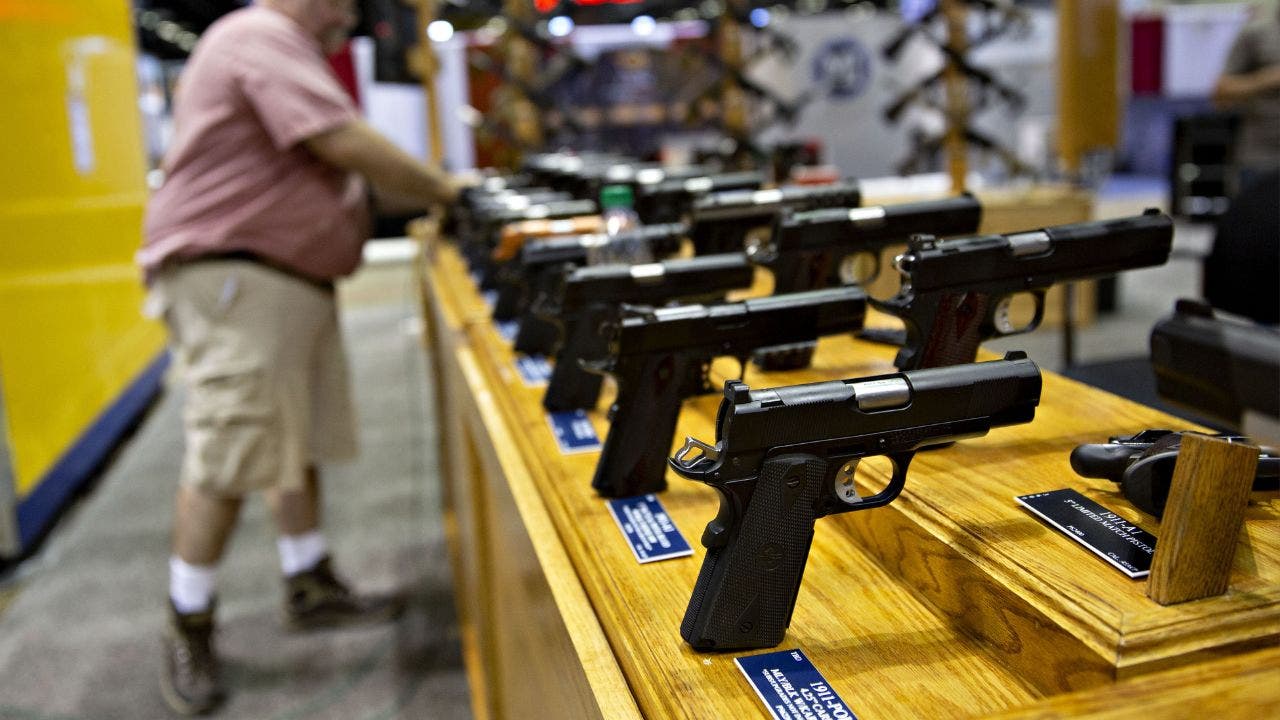Recent cases of Democratic prosecutors targeting citizens for defending themselves have sparked outrage, leading to questions about how far the criminal justice system will go in protecting criminals over law-abiding citizens.
In Massachusetts and New York, two cases stand out as examples of what many see as the warping of justice to criminalize self-defense.
Scott Hayes, a pro-Israel protester, was arrested in Newtown, Massachusetts, and charged with assault and battery with a dangerous weapon after he defended himself against a pro-Hamas agitator, Caleb Gannon.
Shotgun Pistol – No FFL Required, Shipped Directly To Your Home
Gannon had been yelling at the pro-Israel protesters from across the street before sprinting through traffic to physically confront them.
In the ensuing altercation, Hayes shot Gannon, an action many saw as justified self-defense.
However, rather than charging Gannon—the aggressor—Middlesex District Attorney Marian Ryan initially chose to press charges against Hayes.
The public backlash was swift, especially after video footage emerged showing Gannon acting as the aggressor.
BREAKING: Anti-Israel man shot in stomach after charging through traffic to tackle a man at a pro-Israel demonstration outside Boston in Newton, Massachusetts.
Footage obtained exclusively by @KassyAkiva: pic.twitter.com/nsGN3MQVAO
— Daily Wire (@realDailyWire) September 13, 2024
Ryan, a Democrat, has previously faced criticism for her prosecutorial decisions, including her handling of a case involving a homeless woman who used a stun gun to protect herself from an abusive ex-boyfriend.
In that case, Ryan prosecuted the woman for owning the stun gun, a decision that reached the Supreme Court.
Meanwhile, in New York City, Manhattan District Attorney Alvin Bragg has continued his prosecution of Daniel Penny.
Penny subdued Jordan Neely, a man who was behaving erratically and threatening subway passengers.
Penny placed Neely in a chokehold, which resulted in Neely’s death. Bragg, despite video evidence showing Penny trying to protect other passengers, has pressed forward with charges.
In a recent move, Bragg attempted to block testimony regarding Neely’s mental health, potentially undermining Penny’s self-defense claim.
Bragg’s controversial history with self-defense cases includes an incident involving an elderly bodega worker who defended himself from a violent criminal.
Initially, Bragg sought to prosecute the worker, only backing down after a video surfaced showing the worker’s actions were justified.
Despite this, Bragg had already sent the worker to Rikers Island, drawing criticism for criminalizing self-defense.
Critics argue that these cases illustrate a dangerous trend in Democratic-led jurisdictions: a warped view of justice that prioritizes criminals over victims.
The cases of Hayes and Penny highlight a broader narrative that self-defense is being treated as a criminal act in these areas, while violent criminals receive more leniency.
Adding fuel to this discussion was a comment made by Kamala Harris during a campaign event with Oprah Winfrey.
Harris, who has been a vocal advocate for gun control, declared, “If somebody breaks into my house, they’re getting shot.” This statement was met with surprise by Winfrey and others, given Harris’s opposition to arming teachers in schools for self-defense. Harris has previously identified herself as a gun owner, saying her firearm is for “personal safety.”
Kamala Harris tells Oprah “if somebody breaks into my house, they’re getting shot”:
“Probably shouldn’t have said that”
— Pop Base (@PopBase) September 20, 2024
However, her stance on guns in the hands of teachers has been notably different.
In July 2024, Harris criticized “extremists” who advocate for teachers to carry firearms to defend students, a policy supported by many Second Amendment advocates.
Harris’s recent comment about shooting an intruder, while supporting stricter gun control measures for others, has raised questions about the consistency of her positions on personal safety and gun ownership.
The cases of Scott Hayes, Daniel Penny, and the comments made by Harris have amplified debates over self-defense laws and the role of prosecutors.
With Democratic prosecutors like Bragg and Ryan taking a hardline stance against self-defense in their cities, critics warn that law-abiding citizens are being left vulnerable to violent criminals.
On the national stage, Harris’s comments reveal the complexities of the gun control debate, where the right to self-defense is seen as paramount for some, yet questioned for others depending on the circumstances.
As these issues continue to unfold, the question remains: Will more cities follow the path of New York and Massachusetts, where self-defense is treated as a criminal act, or will there be a shift toward protecting the rights of law-abiding citizens?
The opinions expressed by contributors and/or content partners are their own and do not necessarily reflect the views of LifeZette. Contact us for guidelines on submitting your own commentary.
Read the full article here


![Kamala Says She’d Shoot Intruders While Dems Prosecute Others For Self-Defense [WATCH] Kamala Says She’d Shoot Intruders While Dems Prosecute Others For Self-Defense [WATCH]](https://www.lifezette.com/wp-content/uploads/2024/08/2024.08.14-09.55-lifezette-66bd27de89e1a.jpg)



![Joe Biden Shocks Kamala Harris with Wildfire Remark That Leaves Her Speechless [WATCH] Joe Biden Shocks Kamala Harris with Wildfire Remark That Leaves Her Speechless [WATCH]](https://www.lifezette.com/wp-content/uploads/2025/01/2025.01.10-01.35-lifezette-67812207187ea.jpg)



